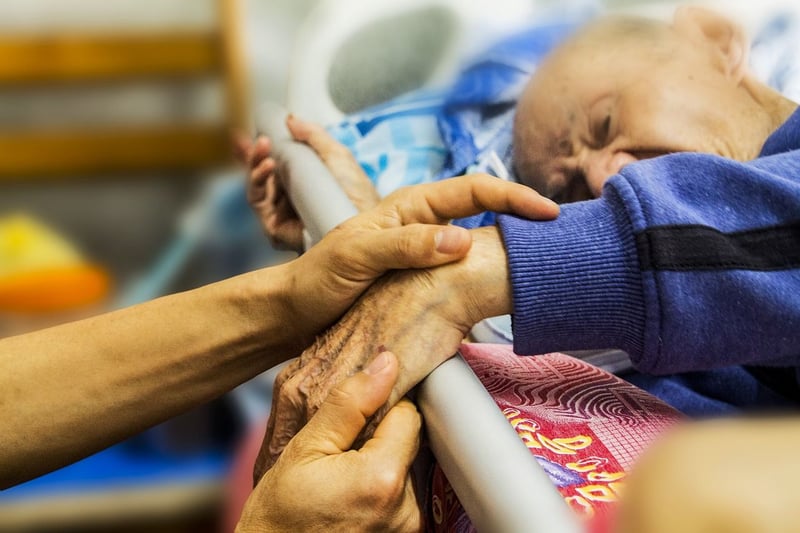 Since 1997, November has been recognized in the U.S. as National Family Caregivers Month. At this time each year, we honor the everyday heroism of the more than 40 million Americans who serve this role. The AARP Public Policy Institute determined that that in 2013, family caregivers provided 37 billion hours of care to adults who needed help with everyday activities, estimating the economic value of this work at $470 billion.[1]
Since 1997, November has been recognized in the U.S. as National Family Caregivers Month. At this time each year, we honor the everyday heroism of the more than 40 million Americans who serve this role. The AARP Public Policy Institute determined that that in 2013, family caregivers provided 37 billion hours of care to adults who needed help with everyday activities, estimating the economic value of this work at $470 billion.[1]
The Needs of Caregivers
Despite the relatively low estimate of the economic value they provide (the above statistic amounting to just $12.70 an hour), unpaid family caregivers take on enormous responsibilities, often including complex medical supports.[2] More than half of caregivers work full time, but those who worked 15 hours or more per week report that their caregiving obligations significantly affect their work life.[3] At the same time, only 15% of caregivers report that they access respite care.[4] This constant need takes a significant toll: studies indicate that 40–70% of caregivers of older adults have clinically significant signs of depression with 25–50% suffering from major depression.[5]
Self-Care for Caregivers
With challenges like these, it’s vital that caregivers devote attention to caring for themselves. This is much more easily said than done, however. The demands of caregiving extend around the clock, often leaving little time for overworked caregivers to take care of their own needs. The first step in getting your needs met is to identify them.
Take the concrete step of making a list of things that you need. For example, are you eating a healthy diet, sleeping enough, and getting enough exercise? Are you able to take breaks from your caregiving duties? Can you take more than two days in a row to focus on yourself? List your needs as they come to mind. Once you have them down on paper, think critically about what resources you may be able to access to meet those needs. Some possible sources of support include
- Other family members
- Community organizations
- Friends and neighbors
- Professional caregivers
Asking Questions
The theme of National Caregivers Month 2019 is #BeCareCurious. This highlights the need for family caregivers to ask questions and explore the various options that are available for their loved ones so they can make well informed decisions. There are a wide range of topics caregivers need to make decisions about, either with or on behalf of their loved ones. Caregiver Action Network advises being curious about not only the patient’s medical condition and treatment options but also
- Your loved one’s goals
- The patient’s care plan and what comes next
- Insurance coverage details
USA.gov provides a helpful list of government sources of support, and additional resources are available on the AARP website.
At Iowa Radiology, we recognize and honor the contributions of the caregivers on whom many of our patients depend. We are dedicated to providing the very best in customer care and are happy to answer any questions you may have about procedures performed at our clinics.
[1] Edem Hado and Harriet Komisar. Fact Sheet: Long-Term Services and Supports. AARP.org. https://www.aarp.org/content/dam/aarp/ppi/2019/08/long-term-services-and-supports.doi.10.26419-2Fppi.00079.001.pdf. Published August 2019. Accessed 15 Oct 2019.
[2] Ibid.
[3] Family Caregiver Alliance. Caregiver Statistics: Work and Caregiving. Caregiver.org. https://www.caregiver.org/caregiver-statistics-work-and-caregiving. Published May 11, 2016. Accessed October 15, 2019.
[4] Family Caregiver Alliance. Caregiver Statistics: Health, Technology, and Caregiving Resources. https://www.caregiver.org/caregiver-statistics-health-technology-and-caregiving-resources. Published May 11, 2016. Accessed October 15, 2019.
[5] Family Caregiver Alliance. Caregiver Assessment: Voices and Views from the Field, Volume II. Caregiver.org. https://www.caregiver.org/sites/fca.huang.radicaldesigns.org/files/pdfs/v2_consensus.pdf. Published April 2006. Accessed Oct 15, 2019.


